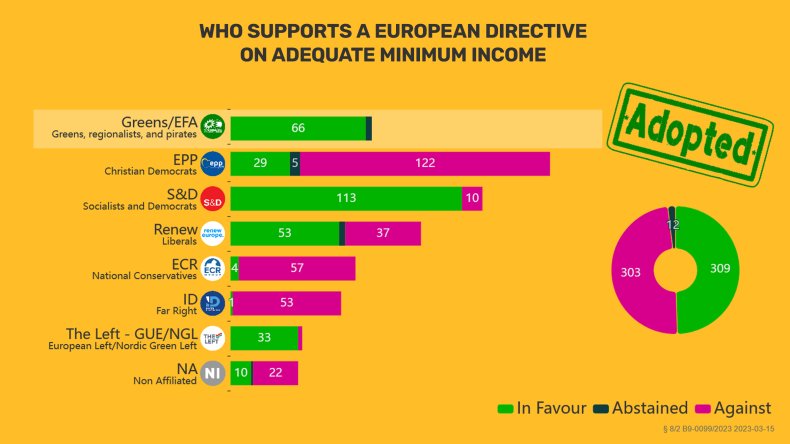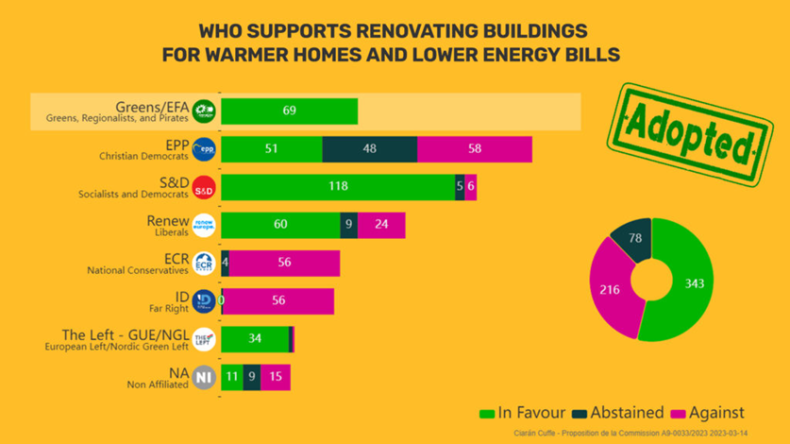Here is a debriefing of the votes taken by the European Parliament in March. As you can clearly see the conservatives of the EPP (PN) and their far-right allies voted against an EU-wide decent minimum income. Here in Malta they hold seminars and what not about ‘social justice’, but in fact they couldn’t care less.

In the vote on zero-carbon, energy efficient buildings all Malta’s MEPs, from Nationalist David Casa to so-called ‘progressives’ from Labour voted against. In fact Labour MEPs Alfred Sant, Alex Agius Saliba and Cyrus Engerer were among just six MEPs from the Socialists and Democrats group who voted against the proposed revision of the Energy Performance of Buildings Directive.
Why? Because they say it ‘increases costs of houses’. Now, what increases costs of houses is the refusal of Maltese governments to regulate the sector, it is schemes like those for foreign buyers which push prices up, so that the value of a property meets the minimum price criteria. The truth is that government can enforce regulations for value for money in construction, use targeted schemes to enable upgrading of existing building stock and tax the hell out of speculatory practices. Developers should be forced to stick to rules, since they won’t budge otherwise. But we’re stuck because the construction industry finances Labour and PN. They do not want change for better homes. This is what being against people and the environment means today. Hopefully the EU will drag the Maltese government kicking and screaming and force it to act. Well done to Irish Green MEP Ciarán Cuffe for piloting the directive through the European Parliament.

The whole debriefing by the Greens/EFA in the EP can be read here.
https://www.greens-efa.eu/en/article/news/debriefing-of-the-march-i-2023-plenary-session
“This is an important step towards lowering energy bills and tackling the root causes of energy poverty. Seven out of ten buildings in the EU are energy inefficient and the number of people at risk of energy poverty is on the rise. By tackling this problem head-on, this directive can decrease energy bills for vulnerable households, reduce our dependence on fossil fuels, and create high-quality jobs.”
Ciarán Cuffe, Greens/EFA MEP and Rapporteur on the directive
Leave a Reply